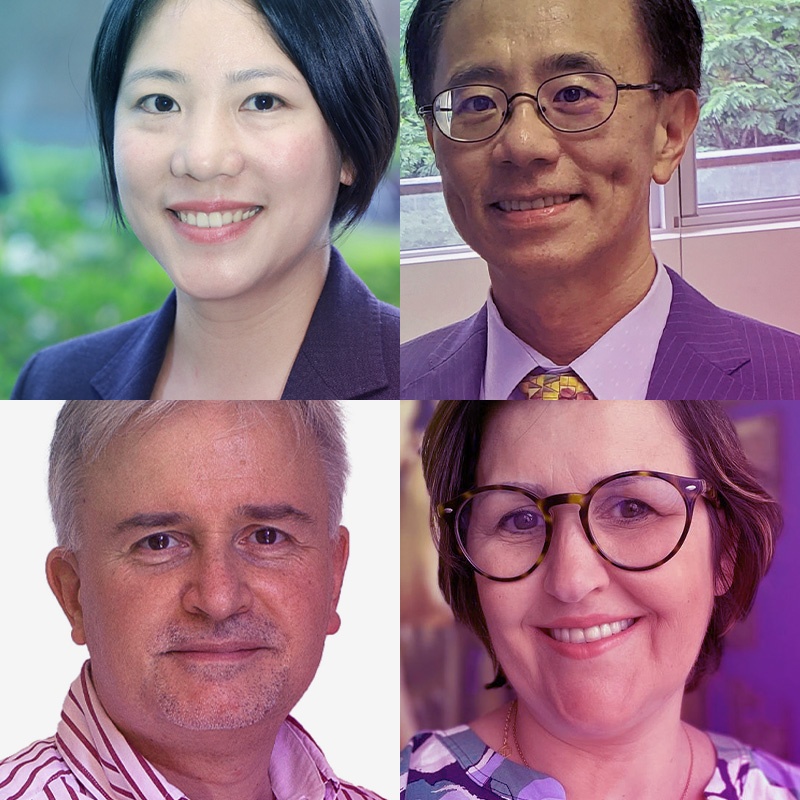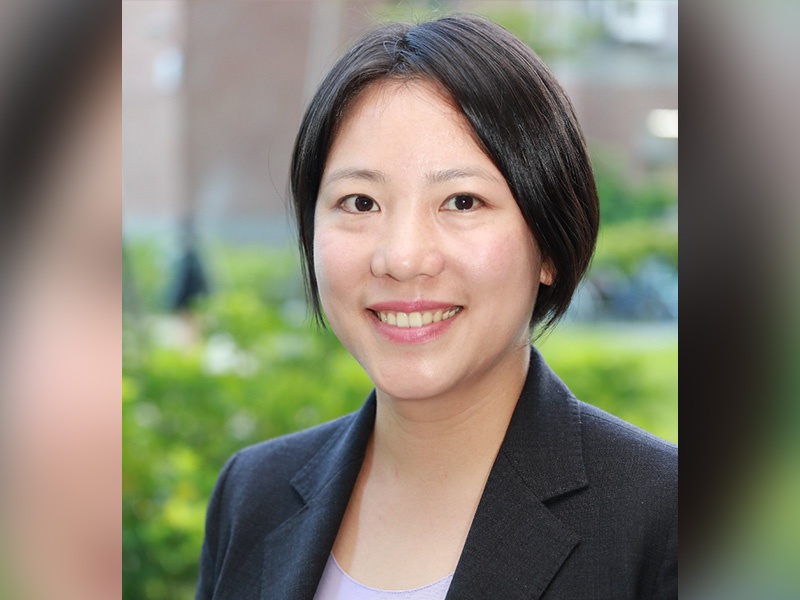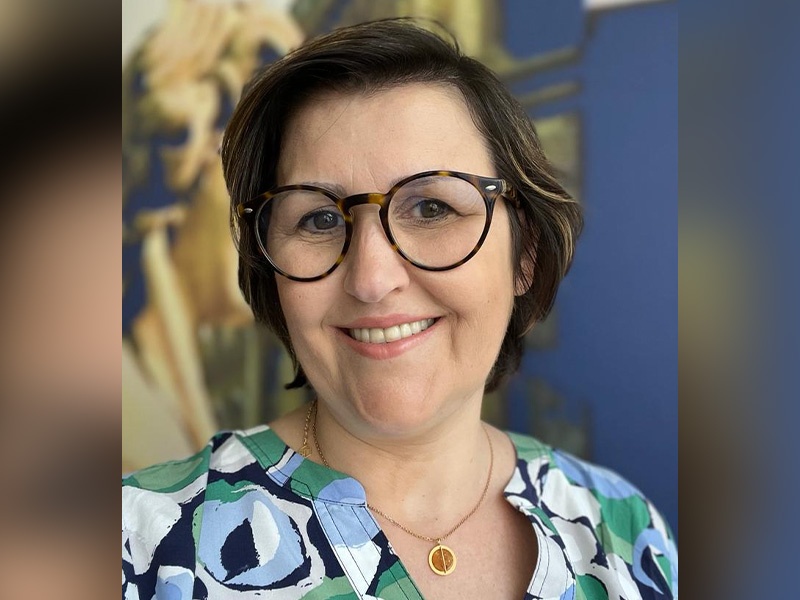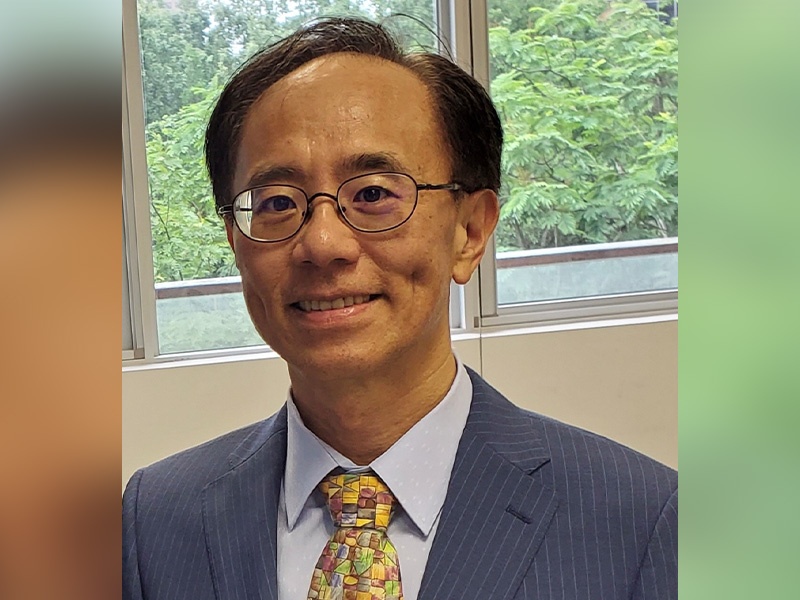
DGS 2024-2025 New Board Members

Tomasz Janowski is the Head of the Department of Informatics in Management at the Gdańsk University of Technology, Poland; Invited Professor at the University for Continuing Education Krems, Austria; and Co-Editor-in-Chief of Government Information Quarterly. Previously, he was the head of unit and Senior Research Fellow at the United Nations University in Macau and Portugal, member of the evaluation panel of the European Commission’s Joint Research Center, co-chair of the e-Government Interest Group at the World Wide Web Consortium, founder and chair of the International Conference on Theory and Practice of Electronic Governance series, etc. His research interests include digital government, sustainable digital transformation, and digital transformation for sustainability. He co-authored over 270 academic publications and technical/policy reports and led over 20 international projects. His research and projects were funded by the Commonwealth Secretariat, European Commission, Inter-American Development Bank, International Development Research Centre, International Telecommunication Union, Organization for Security and Co-operation in Europe, United Nations Development Programme, United Nations Educational, Scientific and Cultural Organization, the World Bank, etc. He earned MSc degree in Mathematics, PhD degree in Computer Science, and DSc-equivalent degree in Management.
My motivation for running for the membership in the Digital Government Society (DGS) board is three- fold. First, I recognize the unique value that DGS, as the international community of researchers and practitioners engaged in and committed to the principles of democratic digital government, can deliver to its members and the society. I also appreciate DGS relying on the strength of individual members and the members’ institutions but not being dominated by any single one. Second, I see the potential of DGS extending its activities beyond the organization of annual conferences. By pooling resources, contacts, competencies, etc. contributed by individual members and their institutions, jointly developing research and development projects, education programs, policy proposals, etc. and collectively approaching government agencies, funding agencies and international organizations. Third, while DGS has been evolving over the years from the national to regional to global arena, and the composition of the membership and the location of the DG.O conferences reflects this evolution, DGS is still present in relatively few and mostly high-income countries, and lacks established connections to relevant international organizations to increase its reach and impact. If elected, I would contribute to any committee work that strengthens DGS in these areas.

Helen K. Liu is a Professor at the Department of Political Science and the Graduate Institute of Public Affairs, National Taiwan University. With a background in business (the Ohio State Univ.), economics (the University of Texas at Austin), and public affairs (Ph.D., Indiana University-Bloomington), she researches crowdsourcing platform designs for the public sector. Recently, she received an Outstanding Research Award from the National Science and Technology Council in Taiwan. Helen had five years of experience serving on the board at the Association for Research on Nonprofit Organizations and Voluntary Action. She also serves on the editorial board of Government Information Quarterly. She is a co-chair of dg.o 2024 on June 11-14, 2024, at the National Taiwan University.
I am honored to be nominated to help serve DGS, a critical research and practice institution in digital government studies that has embraced me since my doctoral studies and has helped guide my career and research. I appreciate this opportunity to pay it forward to others. I am committed to helping continue to build the community to advance digital government research, fostering interdisciplinary collaboration. I am excited to apply my management background to advancing the digital government society and tap into my research network in Asia to grow the international membership for the society. I will work with the existing DGS board members to share responsibilities in any DGS committees where my services or expertise are needed.

Edimara M. Luciano is a Professor in the Management Graduate Program at the Pontifical Catholic University (PUCRS), Porto Alegre, Brazil, and a Guest Professor in the Department for e-Governance and Administration at the University for Continuing Education Krems (UWK), Krems, Austria. She holds a Master’s and a Ph.D. from the Federal University of Rio Grande do Sul, Brazil. She was elected for two terms at ANPAD – Brazilian Association of Graduate Programs in Management, as a Scientific Committee Member, and as the Coordinator of the Information System Division, being a Conference Co-Chair in three editions of the Brazilian Academy of Management (ENANPAD), and ANPAD Information Systems Conference (ENADI). She has been contributing with AMCIS, ICEGOV, and dg.o as a co-track chair. She coordinated and was a team member of several projects funded by Brazilian and international research agencies. She was the local coordinator of the ERASMUS Capacity Building Project CAP4CITY, and the coordinator of a CAPES PRINT Internationalization Mobility Project, CAPES Global South Strategic Cooperation, and Inter-American Development Bank Capacities for Digital Transformation at the Brazilian Subnational Level. Her research interests are digital government, smart and sustainable cities, open government, collaborative governance, digital transformation governance, public value, and social innovation.
The DGS stated values of inclusion, relevance, and collaboration drive my planned contribution focus. Regarding inclusion, I could collaborate to increase the support for Brazilian and Latin-American researchers and practitioners to get access to the highly qualified DGS-related conferences and journals. On relevance, my activities could contribute to a national-wide discussion aiming to increase the readiness for submissions and the chances of approval for DGS-related conferences and journals. The relevance can be approached by articulating the academy, government, and other digital government quadruple helix actors as a way to contribute to the global digital government debate and agenda. By bringing the Brazilian and Latin American context (success cases, good practices, issues, wicked problems, necessities, culture, and modus operandi) closer to the discussion, DGS can expand its scientific and social impact, to help fulfill its mission. I believe I can contribute to the Linking Research and Government Management committee, joining the efforts to integrate practitioners and government management, more specifically, Brazilian government representatives. I believe a new committee focused on diversity and inclusion could support the better articulation of the current initiatives, and I would be happy to participate in it, especially with the development of a diversity and inclusion policy. Additionally, the possibility of being a DGS board member can be an opportunity to interact with my Brazilian pairs to accomplish the creation of the DGS Brazilian chapter, which can be the utmost articulator of the intended activities and contribute to the declared values.

Yu-Che Chen, Ph.D., is Isaacson Professor at the University of Nebraska at Omaha and Professor at the School of Public Administration. Dr. Chen serves as the Chair of the Ph.D. Program in Public Administration and the Director of the Digital Governance and Analytics Lab. Dr. Chen received his Master of Public Affairs and Ph.D. in Public Policy from Indiana University-Bloomington. His current research interests are public governance of artificial intelligence, cyberinfrastructure governance, and collaborative digital governance. He has served as PI or Co-PI of NSF and other external grants with a total award of over $3.5 million. Dr. Chen’s most recent book is the co-edited volume: The Oxford Handbook of AI Governance. He published a single-authored book Managing Digital Governance with Routledge and served as lead editor for two other books. In addition, he has published over 50 peer-reviewed journal articles, book chapters, proceeding papers in digital government and governance. He is Associate Editor of the Government Information Quarterly and the Digital Government: Research and Practice. He serves on the Executive Committee of the Section on Science and Technology in Government (SSTIG) for the American Society for Public Administration (ASPA) and as the conference co-chair of dg.o 2024.
I am honored to run for the President-Elect of the Digital Government Society (DGS) to serve this esteemed global interdisciplinary community of digital government scholars. The DGS has been a source of intellectual inspiration and a platform for research collaboration for digital government scholars worldwide. My vision is to build on the DGS’s strengths in intellectual leadership, interdisciplinary collaboration, and community building. I will take a collaborative approach to developing a shared vision of the DGS community while recognizing the salience of rigor in interdisciplinary research and the opportunity to engage the next generation of digital government scholars. My current and past service to the DGS provides an in-depth understanding and relevant experiences for servant leadership. I currently serve as the conference co-chair of dg.o 2024. I also served as the lead conference chair of dg.o 2021 and the lead program chair of dg.o 2019. Moreover, I served as a two-term DGS board member (2018-2019, 2020-2021) with additional focused service on the Journal Liasion and Student Support committees. My role as Associate Editor of the Government Information Quarterly and the Digital Government: Research and Practice and my scholarship in digital governance allow me to contribute to the DGS’s intellectual leadership.


